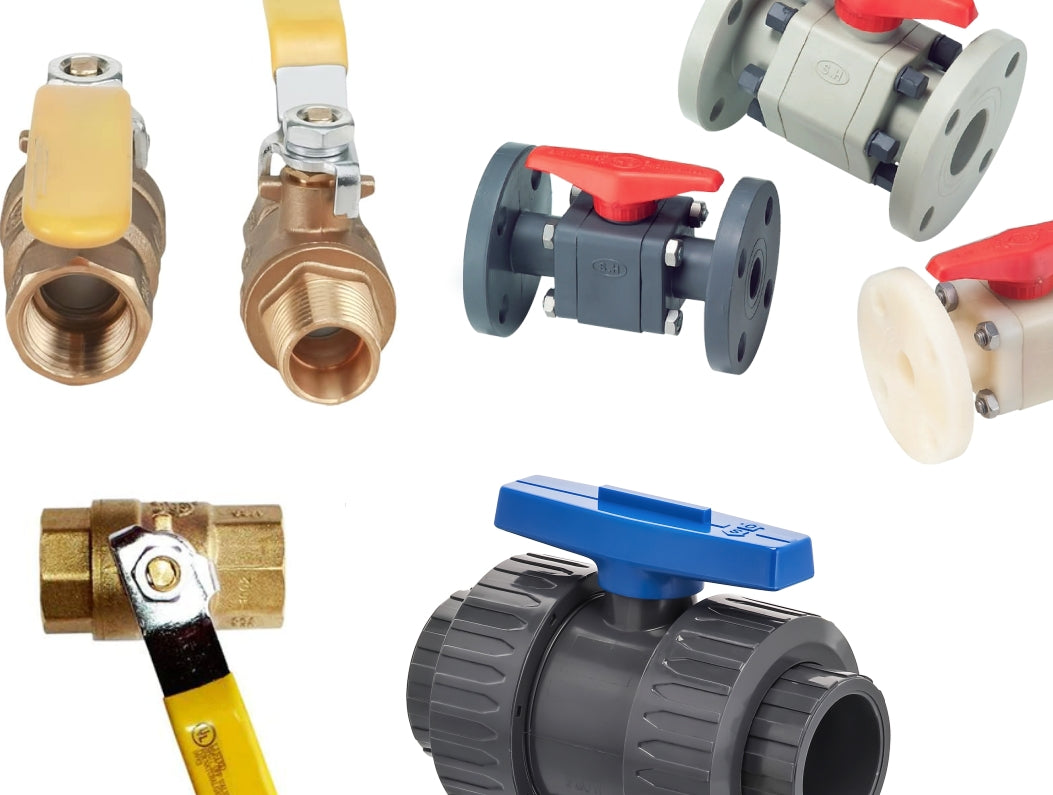PVC ball valves and brass ball valves are the two most commonly used liquid flow control valves worldwide. In this blog post, we delve into the factors that influence the choice between these two similar but vastly different options, helping you make informed decisions for your specific needs.
Understanding PVC Ball Valves:
PVC ball valves are crafted from durable thermoplastic material known for its corrosion resistance and affordability. These valves feature a spherical ball with a hole through its center, controlled by a lever or handle. When the handle is turned, the ball rotates within the valve body, either blocking or allowing the flow of fluid through the pipeline.
Ideal Applications for PVC Ball Valves:
1. **Chemical Processing**: PVC ball valves are well-suited for applications involving corrosive chemicals due to their excellent chemical resistance. They are commonly used in chemical processing plants to regulate the flow of acids, alkalis, and other aggressive substances.
2. **Water Treatment**: Municipal water treatment facilities often rely on PVC ball valves for their corrosion resistance and ability to handle a wide range of water treatment chemicals. They are used in processes such as filtration, disinfection, and pH adjustment.
3. **Irrigation Systems**: In agricultural and landscaping irrigation systems, PVC ball valves are preferred for their resistance to corrosion from water and fertilizers. They provide reliable control over water flow in irrigation pipelines, ensuring efficient distribution to crops and landscaping features.
Understanding Brass Ball Valves:
Brass ball valves are constructed from brass, a copper-zinc alloy prized for its strength, durability, and machinability. These valves feature a spherical brass ball with a hole through its center, operated by a lever or handle mechanism. Brass ball valves are known for their robustness and ability to withstand high temperatures and pressures.
Ideal Applications for Brass Ball Valves:
1. **Industrial Applications**: Brass ball valves are commonly used in industrial settings where high temperatures and pressures are encountered. They are favored for applications such as steam control, compressed air systems, and hydraulic systems due to their durability and strength.
2. **Plumbing Systems**: In residential and commercial plumbing systems, brass ball valves are preferred for their reliability and longevity. They are often used for shut-off and control applications in water supply lines, heating systems, and gas pipelines.
3. **Oil and Gas Industry**: Brass ball valves find widespread use in the oil and gas industry for controlling the flow of crude oil, natural gas, and other hydrocarbons. Their resistance to corrosion and ability to handle high-pressure environments make them well-suited for these demanding applications.
Choosing the Right Valve:
When selecting between PVC and brass ball valves, consider the following factors:
- **Operating Conditions**: Assess the temperature, pressure, and chemical compatibility requirements of your application.
- **Cost Considerations**: Evaluate the initial cost and long-term maintenance expenses associated with each valve material.
- **Environmental Factors**: Consider environmental regulations and restrictions that may influence material selection.
Conclusion:
PVC and brass ball valves offer distinct advantages and are each suited to specific applications based on their material properties and performance characteristics. By understanding the unique features of each valve type and assessing the requirements of your application, you can confidently select the right valve for optimal performance, longevity, and safety in your fluid control system.

